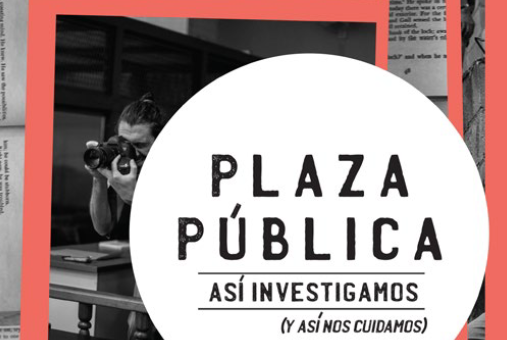
The Guatemalan investigative journalism site Plaza Pública recently launched a journalism and safety protocols manual for journalists that summarizes the lessons of its first six years of existence.
Peruvian investigative journalism site IDL-Reporteros received, for the third time this week, a request from judicial and legislative authorities to reveal its journalistic sources after it published a report revealing alleged acts of corruption in the Peruvian judicial system.
The award-winning International Consortium of Investigative Journalists (ICIJ) welcomed seven Latin American journalists to its network.
Venezuelan investigative journalist Joseph Poliszuk, co-founder and editor-in-chief of Armando.info, is one of two “courageous digital news pioneers” to receive the Knight International Journalism Award.
Since March 2016, a pink two-story, 300-square-meter house on a tree-lined street in Botafogo, in the southern area of Rio de Janeiro, has been a haven and a venue for both Brazilian and foreign journalists and for those interested in journalism and the ongoing changes surrounding the profession.
On Oct. 3, the governor of Puerto Rico announced that 63 of 69 hospitals in the U.S. territory were “operational.” It was an unbelievable achievement since Hurricane Maria had made landfall almost two weeks prior as a Category 4 hurricane. Regardless, a local non-profit focused on investigative journalism sought to uncover the truth.
At a time when most journalism is moving from print to digital, Peruvian investigative journalism site Ojo Público is doing the opposite. At least partly.
As with the Panama Papers, Latin American journalists played pivotal roles in the management, reporting and editing of the global investigation known as the Paradise Papers, a reporting project led by the International Consortium of Investigative Journalists (ICIJ) that analyzes a trove of 13.4 million documents revealing details about the offshore activities of individuals and entities around the world.
“It’s been 17 years of this red accounting (cuenta roja) in which we have not stopped counting the number of journalists killed. There are 109, and a good part of them in the last two administrations,” said Daniela Pastrana, director of Mexican journalists organization Periodistas de a Pie. “But the counting began, paradoxically, with the start of the democratic transition. That is one of the things that I still cannot explain.”
In its two years of existence, Peruvian site Convoca has produced investigative reports based on the law of transparency and access to information that were internationally awarded and even motivated a legislative change in Peru. Now, Convoca will use its expertise to help train the next generations of investigative journalists who will monitor those in power in the country.
The Costa Rican newspaper La Voz de Guanacaste, founded in 2002 as La Voz de Nosara, began as a printed newsletter featuring local stories from the northwestern Costa Rican province of Guanacaste. Today, it is the only non-profit Costa Rican newspaper with digital and print versions published in English and Spanish, and almost 42,000 followers on social networks.
On July 12, a Brazilian federal judge sentenced former President Luiz Inácio Lula da Silva to nine and a half years in prison for corruption, obstruction of justice and money laundering in relation to the Lava Jato case, a corruption scheme in at least 12 countries involving several Brazilian companies and politicians in Latin America.